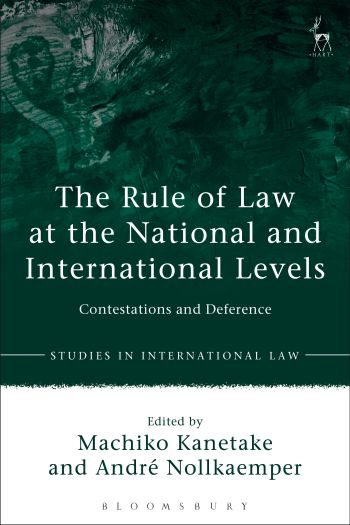
This book aims to enhance understanding of the interactions between the international and national rule of law. It does so by demonstrating that the international rule of law is not merely about ensuring national compliance with international law.
International law and institutions (eg.g., international human rights treaty-monitoring bodies and human rights courts) respond to national contestations and show deference to the national rule of law. While this flexibility might come at the expense of the certainty of international law, it suggests that the international rule of law in relation to the national legal order allows flexibility, national diversity and pluralism.
The essays in this volume are set against the background of increasing conflict between international and national legal norms. Moreover the book shows that international law and institutions do not always command blind national obedience to international law, but incorporate a process of adjustment and deference to national law and policies that are protected by the rule of law at the national level.